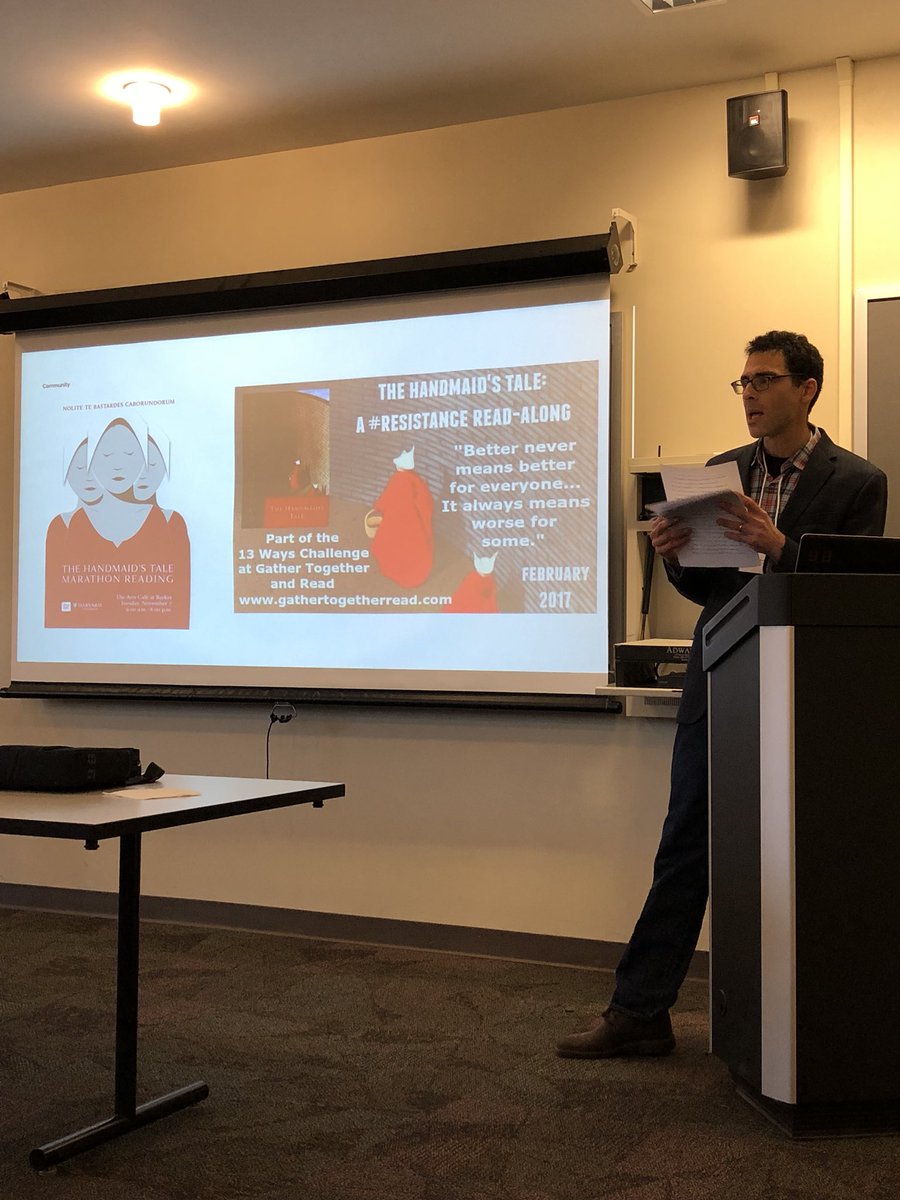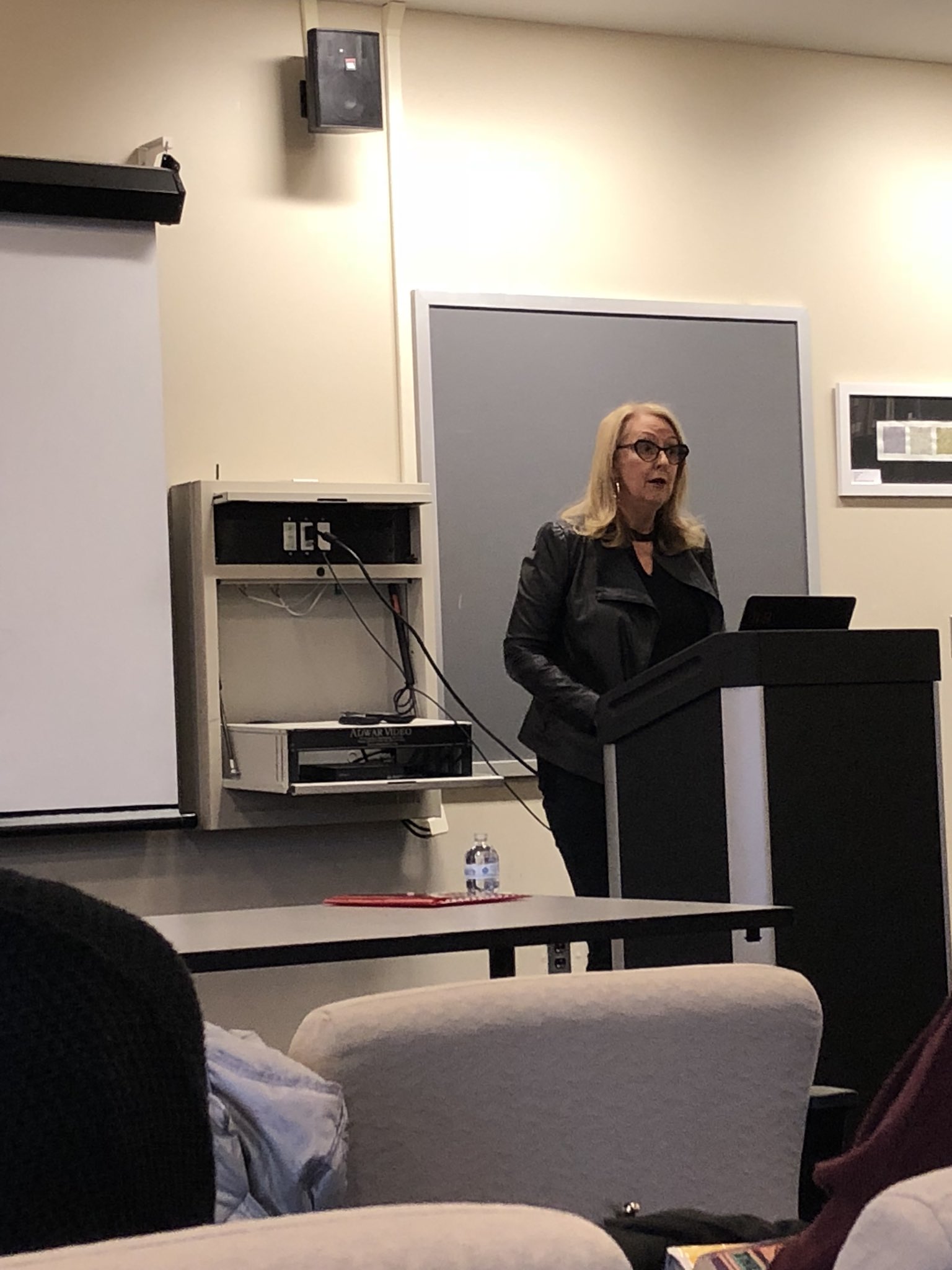 During the keynote address at this year’s English graduate conference here at Stony Brook University, guest speaker Lisa Duggan, Professor of Social and Cultural Analysis at NYU, quipped that President Donald Trump reminded her of a particular member of her family (she did not mean this as a compliment). Duggan’s joke reveals an essential fact about the current sociopolitical climate: the political is not only personal but also unavoidable.
During the keynote address at this year’s English graduate conference here at Stony Brook University, guest speaker Lisa Duggan, Professor of Social and Cultural Analysis at NYU, quipped that President Donald Trump reminded her of a particular member of her family (she did not mean this as a compliment). Duggan’s joke reveals an essential fact about the current sociopolitical climate: the political is not only personal but also unavoidable.
The organizing committee for the 30th annual English Graduate Conference (of which I was a proud member) took this fact to heart when deciding on the theme for our conference. A quick look at UPenn’s Call for Papers site showed us that we were not alone. Many graduate conferences across the country adopted themes related to resistance, rebellion, and politics, among others. The themes of these conferences indicate an increasing level of sociopolitical awareness in academia. With the current political climate in mind, the organizing committee came up with a theme that we believed to be relevant and engaging: Literature as Activism.
Our hope was that our chosen theme would not only encourage interdisciplinary conversation but also highlight the reality that cultural artifacts (literature, history, philosophy, film, etc.) often absorb, reflect, and critique the sociopolitical moments from which they emerge. We sent out a call for papers on the UPenn page and solicited work from graduate students across the country. Our faculty happily volunteered to participate as respondents, while students from a wide variety of graduate programs found our theme appealing enough to travel from as far as the United Kingdom to participate.

Professor Andrew Newman presenting on “Allegory and Pedagogy: Dystopian Fiction in 2018.”
Held in the Poetry Center and various classrooms in the Humanities Building, the day began with a presentation by our own Andrew Newman, an Associate Professor in the English Department who works on early American literature. His talk, entitled “Allegory and Pedagogy: Teaching Dystopian Fiction in 2018,” focused on the tendency to read great works of literature as a way to make sense of the present sociopolitical moment.
Panels throughout the day were organized by themes such as “Teaching Activism: Education and Literacy,” “Pop Politics: Culture and Activism,” and “Queer Activism: Past Present and Future.”

Jon Heggestad presenting on cultural exchange in queer YA literature
Undergraduates in the Honors program gave engaging talks on the relationship between literary texts and contemporary politics. We awarded a Best Paper Prize to Mark Muster, a Master’s Student in English at Syracuse University, for his paper “Looking Backward to Look Forward: Vacillating Against Co-optation in Search of a Queer Resistance.”
Professor Lisa Duggan, a scholar and activist who works on modern U.S. culture and the history of gender and sexuality, ended the day by giving a fascinating talk entitled “Up Against the Wall: Intersectional Organizing Against the Global Right.”

Keynote speaker and Professor Lisa Duggan
The conference had its largest attendance since its relocation to Stony Brook’s main campus. The committee would like to thank the graduate students, undergraduate students, and faculty who participated as well as the members of the Stony Brook Community who came out to show their support and hear about the work being done in humanities programs today. We look forward to further conferences that interrogate the roles that literature and academia play in our society and in the public sphere.

Stony Brook PhD students after their presentations (from left to right): Lindsay DeWitt, Sohini Kumar, Bonnie Chung, and Jessica Hautsch.

